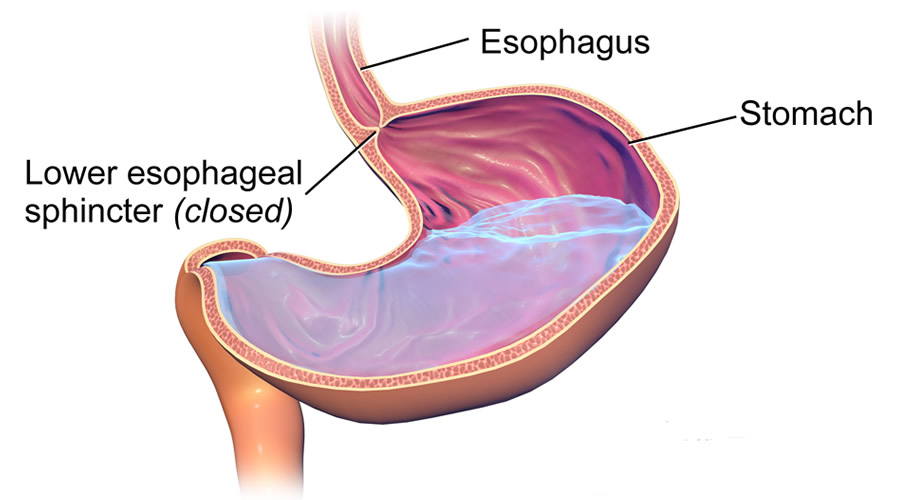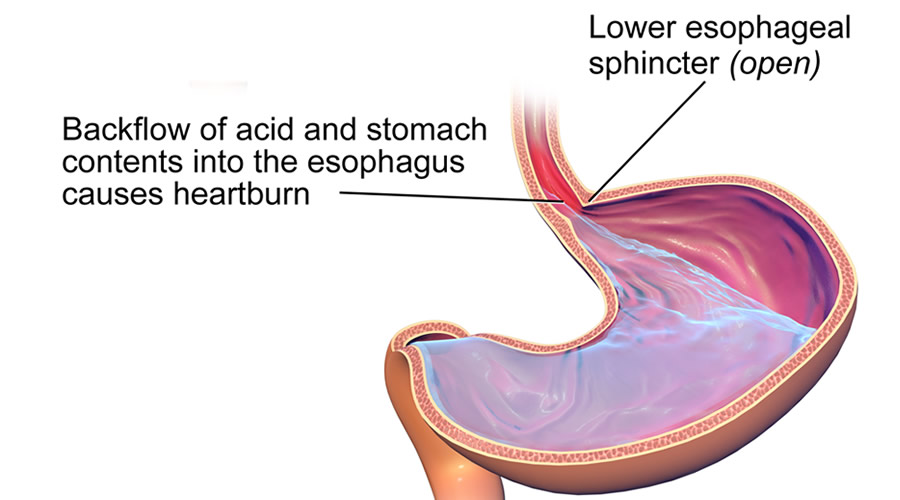Did you know? Up to 1 in 5 people experience heartburn at least once a week.
Customers who suffer from gastrointestinal problems will often visit the pharmacy for relief. Knowledge of these conditions and how they are best treated is essential in order to provide the professional health care assistance expected by your customers.
On any given day you may deal with customers requesting assistance with different gastrointestinal problems, such as:
- A young man complains of indigestion and may request a medicine to stop the burning feeling in his chest.
- A mother is worried about her child suffering from diarrhoea and vomiting.
- An older customer suffers from constipation and needs advice on dealing with this problem.
There are a number of effective medicines available for relieving the symptoms of gastrointestinal problems. Your role is to work closely with your customers, listen to them and ask for further information. From your discussion with them, you may be able to determine their needs. In some cases, if it is appropriate, you may assist them selecting a product that meets their needs – remember that a medicine is not always required. In other cases, you will need to refer the customer to your pharmacist for further questioning or investigation.
What is heartburn?
Reflux (or heartburn) is a common condition associated with stomach acid rising into the oesophagus causing burning pain and occasionally regurgitation or an acidic taste in the mouth. The pain can even radiate to the back or shoulders. Symptoms can be similar to other more serious conditions (e.g. heart attack or gastric ulcer) and should be investigated by the pharmacist for potential medical referral.
The contents of the stomach are usually prevented from travelling back up the oesophagus by a muscle called a sphincter, which acts as a one-way valve. If there is too much pressure or if the muscle is weak, the digestive juices can bubble up into the oesophagus.
Unlike the stomach, the oesophagus doesn’t have a layer of mucus protecting it, so if the acidic gastric juices from the stomach come into contact with the oesophagus, the skin-like lining can get irritated and result in the sensation known as heartburn. If the acid attacks continue without treatment they can cause oesophageal ulcers and damage the oesophagus lining.


What causes heartburn?
Heartburn, like indigestion, can be caused by many different factors, including the over-production of acid, stress, medications (both over-the-counter and prescription), over-eating, certain foods, alcohol, obesity, and smoking.
Foods such as cabbage, onions, cucumber and curries, and drinks such as red wine, beer, carbonated drinks and coffee seem to be common causes of heartburn. Problem foods should be eaten in moderation or avoided completely by sufferers. Eating too close to bedtime and tight clothing can also cause the symptoms.
What assistance can you offer?
It’s important to remember that many of the medicines used to treat gastrointestinal problems are powerful and, like all medicines, if misused they can cause harm. It is your responsibility to understand these products and to be aware of their use, interactions, side effects as well as the information you should be providing to your customers.
Antacids (e.g. Magnesium/Aluminium Hydroxide, Calcium/Sodium Bicarbonate) and alginates (sodium alginate; barrier medicines), assist in neutralising stomach acid, are fast acting but only provide short‐term relief. Histamine H2 antagonists (e.g. Ranitidine) and Proton Pump Inhibitors (PPIs) (e.g. Pantoprazole) prevent acid production and providing longer-acting relief.
Pharmacy assistants should refer patients who are taking other medication, have medical conditions, the elderly or those with ongoing heartburn problems to the pharmacist. It is really important to identify the cause of the patient’s reflux so this can be addressed. Medications that cause reflux may need to be ceased or reviewed. Other lifestyle factors like not stooping, elevating the bedhead and smoking cessation may also help. Referral to a GP may be necessary if:
- Symptoms do not go away or keep coming back
- Symptoms get worse, particularly during or after exercise
- The pain moves from the chest down to the arm
- Symptoms are severe
- This is the first time the symptoms have been experienced
- Customers find it difficult or painful to swallow
- The customer has bowel motions that are black and tar-like
- The customer’s vomit looks like coffee grounds or has blood in it
- The customer has lost weight and is unsure of the reason for this weight loss
Lifestyle changes
- Avoid tight fitting clothing and belts that put pressure on the stomach; recommend customers wear loose clothing, particularly around the waist.
- Customers should take care of themselves – stress and worry can contribute to digestive problems.
- Stop smoking – tobacco contains tar and chemicals which irritate the digestive system.
- Pillows are not advised as this can cause bending at the waist, which will increase the pressure on the contents of the stomach. Instead, recommend elevating the head about 10-15 centimetres, using blocks or bricks under the mattress.
- Maintain an ideal body weight; this may mean losing weight.
- Avoid medicines that may make heartburn worse. Customers should speak to their doctor about the medicines they are currently taking.
- Some customers have found relief with the use of chamomile tea, ginger steeped in water, liquorice or peppermint.
By Lisa Point, Trainer and Assessor
References
- SIRCPPK308 Assist customers seeking Gastro-intestinal conditions
- NPS Medicinewise

